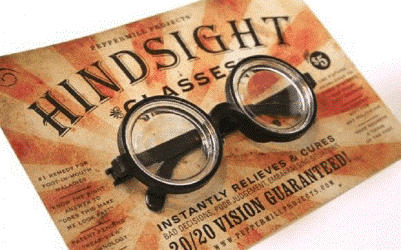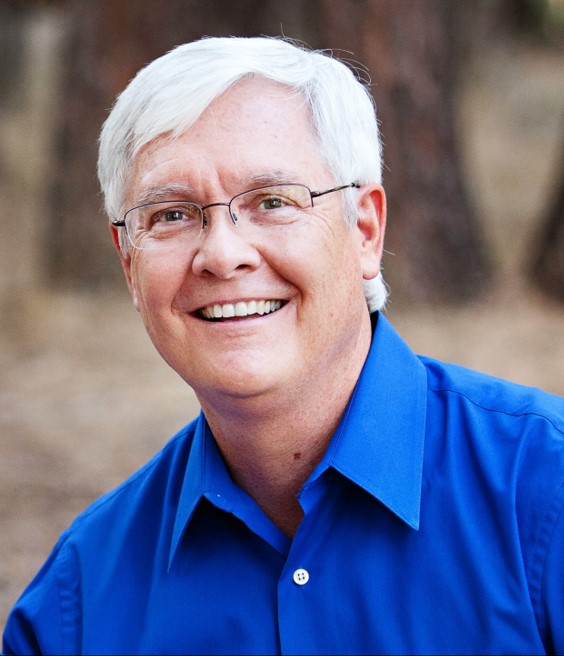
By Bud James, PhD
This year is truly one for the record books. We have all seen, heard, and done things this year that none of us have ever even thought of doing before. In many ways, we collectively endured more challenges on a mental, emotional, physical, and even spiritual level than we believed possible. Many of us can’t wait to put 2020 in the rear-view mirror. But as we are driving away, safely, and quickly, let’s pause for a moment and mindfully reflect on a few key takeaways that we can be grateful for.
Part of our job at Memory Spring is to send out polls and surveys to take the overall business temperature and find out how we can help people be successful in life. After teaching thousands of hours of online classes to thousands of virtual students across the United States, we have learned many very significant lessons.
We are Resilient
No question the emotional roller coaster of 2020 has been rough. The first few months of the year seemed normal enough. Then in March, we were all told to wear facemasks, wash our hands endlessly, and go home. Or never go home.
We were divided into “Essential,” “Unessential,” and “At Risk.” The latter two groups were sent home to shelter-in-place. The Essentials hardly got any escape from work. It was difficult to get our heads around, and the potential death-threats of the constantly escalating COVID-19 numbers were mind-numbing.
Many members of the Essential group wished they were Non-Essential and could stay home, and many of the Non-Essential wanted to help in any way they could. Social Distancing with facemasks was mandatory, but apparently dogs are safe. It was confusing at best.
In spite of all the twists and turns, we weathered the storm. We kept the lights on as best as we could. We focused on staying healthy. We came up with new ways to solve problems. We learned a lot. Looking back, we see that people around the world virtually joined hands and hearts to fight this pandemic. True to our genetics, we humans are a very resilient lot.
We ALL Can Help
Eventually, we realized that wearing a facemask and practicing higher levels of hygiene was about protecting others more than it was protecting ourselves. And that was ok. Because if everyone did it, it helped.
Did it help reduce the spread of the virus? I’m not sure we will ever know. I don’t believe there have been any scientific double-blind tests to determine the efficacy of facemask wearing during a pandemic. If anyone knows of one, please let me know.
On a personal note, I am delighted that food handlers are all wearing masks and gloves. Thank you for increasing our levels of food hygiene. Perhaps some aspect of this will continue, and that would be good.
So what did wearing facemasks do? It made us feel safer – and oddly, connected. We recognized we are all in the same boat. We all had to deal with the same weird mind and body shift. For most people, change is hard, and significant change is greatly resisted. But this was not just “change” – this was potentially life-threatening. So we stepped-up and we chose to help. These positive actions and intentions of everyone improve the health and energy of ourselves and those around us, with immediate benefits.
We Like to Communicate
As someone who watches and coaches non-verbal behavior as part of my job, I can assure you that facemasks reduce one’s ability to read another person’s body language by 33% to 50%! I have learned to really focus on all the other components to make sure I have clear communication.
It can be a real challenge trying to engage in effective communication while social distancing. Some people have had to speak louder or more slowly wearing a facemask. Lip reading is a non-starter. Hand signals can be confusing. Maybe we will all need to learn sign language!
Enter the world of Online Web Conferencing for Everybody! While some of us have been doing business on the web and even chatting with friends over Zoom, Facetime, or Skype for many years, suddenly there was no choice. New words, phrases, and ways to communicate became the norm in 2020. Zoom fatigue is real. Even if some of us resisted it, we soon learned that it was online or nothing. So, we learned new tools and the air became cleaner!
What did web conferencing teach us? We miss the water-cooler conversations. We miss the simple camaraderie of the workplace. Sure, there were days when “those people” drove us nuts, but when you compare that what is happening now, we would happily pick-up bagels and donuts or bake-up some cookies to share with our co-workers. We really like to communicate and engage with our friends in the workplace, and we miss it.
We Will Survive
Ok, so we panicked when this first hit the news. We were ungrounded, thrown off guard, and our lives and livelihoods were threatened. So what did we do? We bought all the toilet paper, alcohol, and wipes that we possibly could. Paper products disappeared off the shelf as did survival food, gear, bullets, and clothing.
Did it help? Maybe. Looking back we realize the stores and banks remained open. There wasn’t a revolt. Amazon, UPS, FedEx, and even the US Postal Service had a banner year. Some of us found new and better ways to thrive and share our good energy with others. Helping who we can, however, we can.
We figured out how to survive and after a while stopped questioning the behavior that would have been considered odd and even threatening a year ago. We learned to drive our cars a bit slower and make room for others, and we found when we are patient and kind, it is reflected back to us. It’s the Golden Rule.
To thrive as humans we need to learn from our challenges, and we have. We have survived and we have found that kindness is free of charge and instantly healing to ourselves and those around us.
Driving Forward
Looking ahead, and glancing at the rear-view mirror, we realize that we survived, the sky didn’t fall, and we all grew in many ways. We learned that things we took for granted – like the kids going to school, a simple handshake, a pleasant smile, a hug, going to a concert, attending church, and many more – are things that we truly value. Things that were simply part of our lives are now missing, and in their absence, we realize their worth.
We can make the choice to embrace the New Year with more gratitude in our hearts, and with a new understanding that everyone has challenges. We recognize that communication, simple kindness, and a little forgiveness costs nothing – yet is likely the best gift we can ever offer. In closing, in appreciation for teaching us to survive ourselves, Thank You 2020.

Robert “Bud” James, Ph.D. is a Corporate Trainer for Memory Spring, an organization focused on enhancing people’s memories, learning skills, job performance, relationships, and brain health. He brings 35+ years of knowledge, leadership, and online collaboration experience in information technology and business operations through leadership roles in MySpace.com, Oracle, BEA, and Unisys. Bud is a US Air Force Special Operations Combat Controller Veteran.

Great article Bud!!!!